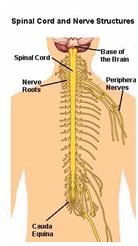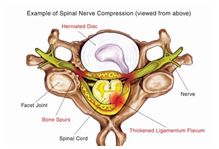Headaches: A New Perspective on an Old Problem
Clear Lake Chiropractor Comments: It’s remarkable to consider how many different types of pain relievers there are for headaches. Not just the corner drug stores but also supermarkets, convenience stores, and gas stations keep an abundant supply. Aspirin, acetaminophen, and ibuprofen, is consumed daily in America by the truckloads.
Have you ever thought about how we approach a health problem or symptom? Too often it’s a knee-jerk reaction were we pop a pill for whatever ails us. Rarely do we ask why there is a headache? What is causing this headache?
It is very well established that there are many causes for headaches. Chemical imbalances in the body can of course cause head pain such as in dehydration or intoxication.
But in large part, the pill stock in gas stations isn’t targeted to the occasional hangover, it supplies the masses who suffer with tension headaches, migraines, and headaches due to mechanical neck disorders (e.g. whiplash). So what is the pill actually doing chemically? This varies from pill to pill. The side effects can range from stomach bleeding, to liver and kidney problems. Most people who take these medications have pain for years and decades. It is long-term use that is especially detrimental to the body. Headaches are a chronic disease and it is likely there will be triggers for you for many years to come.
Prescription NSAIDs and pain pills are usually much more powerful unless you’re doubling up on over-the-counter drugs. With prescription patches and pills it is easy to get addicted if taken over the long run.
But there is a different way to see the problem than the chemical approach. Although the mode of action of these different drugs changes, an important fact remains that they do not treat mechanical problems of the neck. If your headache is being caused by a joint injury in the neck, no amount of drug can correct this postural fault.
How would I know if my headache is really a spine problem? It could be that you notice stiffness in the neck or maybe it’s harder to look over one shoulder. If your headaches are accompanied by a lot of shoulder and neck stiffness and tension, this is a sign of a spine cause. In some cases though, the spine symptoms are very mild, so it is easy to see why patients rarely make the connection in their minds.
A thorough examination is needed to determine if your headache is being caused by a spine injury. X-rays are often used to precisely determine the positions of your spinal vertebrae. They also show the condition of the discs, and any degeneration from older spine injuries.
Several clinical trials have shown chiropractic adjustments are effective for patients with tension-type and migraine headaches. After the spinal problem is corrected, we can show you ways to prevent future problems.
By identifying the cause of your headache, you’ve changed your thinking to looking past the pain and asking why? Now take the time to fix your problem.
Dr. Ward Beecher practices at Beecher Chiropractic Clinic at 1001 Pineloch, Ste 700 Houston, TX 77062. You can schedule an appointment at BeecherChiropractic.com. or by calling (281) 286-1300. If you have any questions regarding this blog, please comment below!
Neck Pain and Pinched Nerves
Clear Lake City Chiropractor Comments: “I woke up yesterday morning with severe neck pain that radiates down my right arm to my hand and I can barely move my neck without producing the shooting arm pain.” Or, “…for the last few months, I’ve had this nagging pain in my neck and when I look up, my arm goes numb.” Or, “Every time I bend my head to the left, my left arm goes numb. I’ve noticed when I lift weights; I can only curl 15 lbs with my left arm compared to 35 lbs with the right.” These are common histories describing a classic “pinched nerve in the neck.” So, what is a “pinched nerve?” To answer this, let’s first look at what a “nerve” is.
In the diagram to the left, the nerves come off the spinal cord. Those in the neck region go down the arm and those in the low back go down the legs. The spinal cord is the “highway” that brings information from the nerves in the arms, legs, trunk, etc., to the brain where information is processed. The bony spine houses and protects the spinal cord and skull protects the brain but there is no bony protection for the nerves. Nerves bring information to the brain allowing us to feel, taste, smell, see, and move our legs and arms to perform complex movements like dancing, running, gymnastics, and so on. Information is constantly going to and from the brain to allow us to function normally. The nerve can get “pinched” anywhere along its course, including the wrist (carpal tunnel syndrome), elbow (cubital tunnel syndrome), shoulder (thoracic outlet syndrome), and/or neck (herniated disk and/or arthritis). This results in a slowing down of information transmission to/from the brain and numbness, pain, throbbing, as well as weakness in strength can occur.
There are two types of conditions that commonly pinch nerves, which generally occur at different times of life – those with a herniated disk (younger > older patients) and those with arthritis (older > younger patients). A combination of the two conditions producing the pinching effect on the nerve can also occur making the diagnosis process a little trickier. The following diagram helps explain these conditions:
The nerves exit the spine through holes that can be narrowed if the jelly central part of the disk herniates outward and into the nerve pushing it against the bone that makes up the hole through which it exits the spine. A “bone spur” (as shown in the diagram to the left, coming off the left facet joint) pushing into the nerve or the thickening of the ligaments that run inside the spinal canal (eg., ligamentum flavum) can also crowd these sensitive nerve structures and cause similar symptoms.
Both of these conditions are commonly treated by chiropractors. If you, a family member or a friend requires care, we sincerely appreciate the trust and confidence shown by choosing our service. We are proud that chiropractic care has consistently scored the highest level of satisfaction when compared to other forms of health care provision and look forward in serving you and your family presently and in the future.
Dr. Ward Beecher practices at Beecher Chiropractic Clinic at 1001 Pineloch, Ste 700 Houston, TX 77062. You can schedule an appointment at BeecherChiropractic.com or by calling (281) 286-1300. If you have any questions regarding this blog, please comment below!



